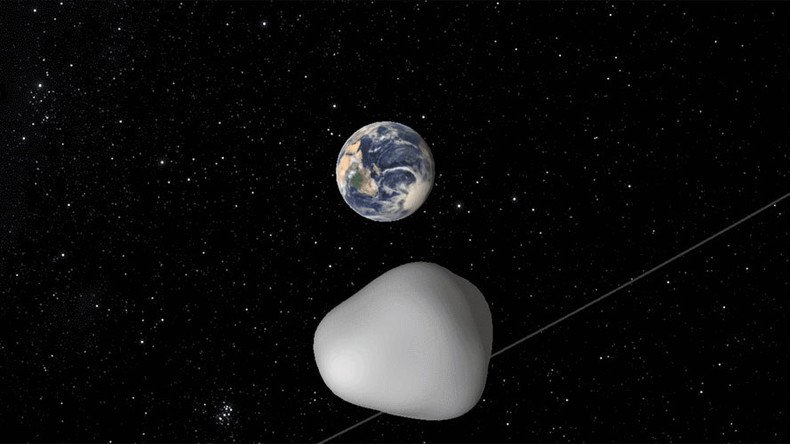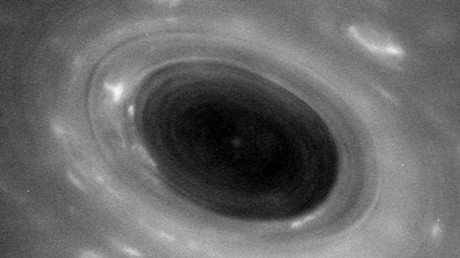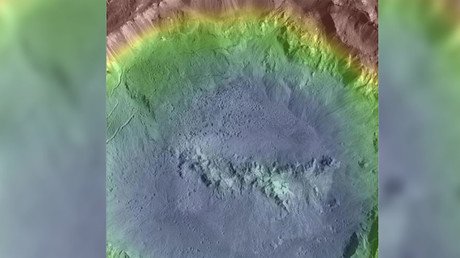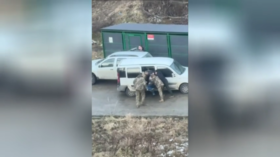Planetary defense: Asteroid flyby will test NASA’s ability to locate space threats

An asteroid due to make a close approach to Earth in October will test NASA's planetary defense system and assess the capability of scientists to locate future threats, the organization’s Jet Propulsion Laboratory (JPL) has announced.
NASA scientists are "excited" about the upcoming flyby, according to a statement released by the JPL on Friday, as it will provide a chance to "test NASA's network of observatories and scientists who work with planetary defense."
Our network of observatories & scientists will track a small asteroid that will safely fly by on Oct. 12: https://t.co/9k9NgrGJo5pic.twitter.com/JrUXN1EC5g
— NASA (@NASA) July 29, 2017
The '2012 TC4' asteroid, which is estimated to be between 30 and 100ft (10 and 30 meters) in size, is expected to make a flyby past Earth on October 12.
Although it's too early to predict exactly how near it will come to Earth, scientists are confident it will come no closer than 4,200 miles (6,800km) from the planet's surface.
"Scientists have always appreciated knowing when an asteroid will make a close approach to and safely pass the Earth because they can make preparations to collect data to characterize and learn as much as possible about it," said Michael Kelley, program scientist and NASA Headquarters lead for the TC4 observation campaign.
"This time we are adding in another layer of effort, using this asteroid flyby to test the worldwide asteroid detection and tracking network, assessing our capability to work together in response to finding a potential real asteroid threat."
Paul Chodas, manager of NASA's Center for Near-Earth Object Studies (CNEOS), said the asteroid is an ideal target for the tests.
"This is the perfect target for such an exercise because while we know the orbit of 2012 TC4 well enough to be absolutely certain it will not impact Earth, we haven't established its exact path just yet," he said.
The '2012 TC4' asteroid hasn't been seen since its discovery in 2012, when it "sped past Earth at about one-fourth the distance from Earth to the moon." It has been too distant and faint to be detected since then.
However, scientists will soon be able to use large telescopes to detect the asteroid and develop more accurate calculations regarding its trajectory and how close it will come to Earth.
According to the JPL, the asteroid may be "slightly larger than the space rock that hit Earth's atmosphere near Chelyabinsk, Russia, in February 2013."
More than a dozen observatories, universities and labs across the world will be taking part in the exercise, so that teams can "collectively learn the strengths and limitations of our near-Earth object observation capabilities," said Professor Vishnu Reddy of the University of Arizona's Lunar and Planetary Laboratory, who leads the campaign to reacquire '2012 TC4.'
"This effort will exercise the entire system, to include the initial and follow-up observations, precise orbit determination, and international communications," he added.
NASA's CNEOS is responsible for "finding, tracking, and characterizing potentially hazardous asteroids and comets coming near Earth." It also issues warnings about potential impacts and assists in the coordination of US government responses to planning in the event of a serious impact threat.














